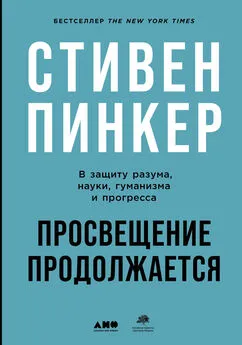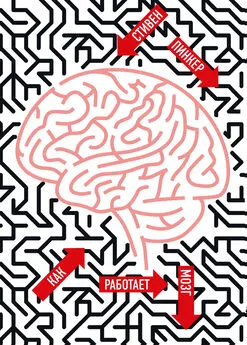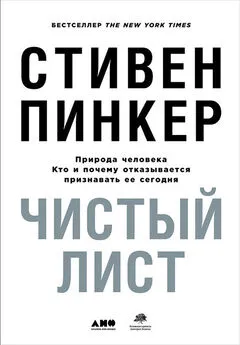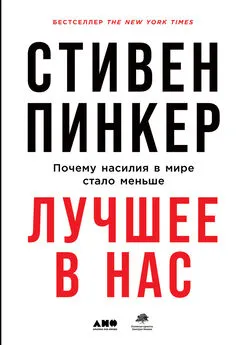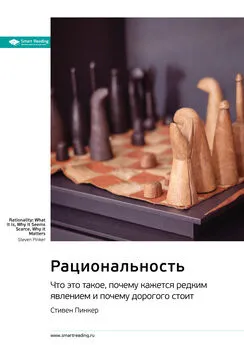Стивен Пинкер - Просвещение продолжается. В защиту разума, науки, гуманизма и прогресса
- Название:Просвещение продолжается. В защиту разума, науки, гуманизма и прогресса
- Автор:
- Жанр:
- Издательство:Альпина нон-фикшн
- Год:2021
- Город:Москва
- ISBN:9785001395362
- Рейтинг:
- Избранное:Добавить в избранное
-
Отзывы:
-
Ваша оценка:
Стивен Пинкер - Просвещение продолжается. В защиту разума, науки, гуманизма и прогресса краткое содержание
Этот прогресс – не случайность и не результат действия внешних сил. Это дар современному миру от деятелей Просвещения, которые первыми додумались, что знания можно использовать во имя процветания всего человечества. Идеи Просвещения – вовсе не наивные мечтания. Наоборот, они сработали – и это неоспоримый факт. Тем не менее именно сейчас эти идеи особенно нуждаются в нашей защите, поскольку противостоят характерным недостаткам человеческой природы – трайбализму, авторитаризму, демонизации чужаков и магическому мышлению, – которые так нравится эксплуатировать современным демагогам. Да, стоящие перед человечеством проблемы огромны, но все они решаемы, если мы, продолжая дело Просвещения, используем для этого разум, доверяем науке и руководствуемся идеалами гуманизма.
Особенности
Более 70 графиков из почти всех областей человеческой жизни.
Для кого
Для поклонников Стивена Пинкера. Для всех, кто интересуется природой человека. Для тех, кто верит в прогресс, и для тех, кто в нем сомневается.
Просвещение продолжается. В защиту разума, науки, гуманизма и прогресса - читать онлайн бесплатно ознакомительный отрывок
Интервал:
Закладка:
Lerdahl, F., & Jackendoff, R. 1983. A generative theory of tonal music. Cambridge, MA: MIT Press.
Levin, Y. 2017. Conservatism in an age of alienation. Modern Age, Spring. https://eppc.org/publications/conservatism-in-an-age-of-alienation/.
Levinson, A. 2008. Environmental Kuznets curve. In S. N. Durlauf & L. E. Blume, eds., The New Palgrave Dictionary of Economics (2nd ed.). New York: Palgrave Macmillan.
Levitsky, S., & Way, L. 2015. The myth of the democratic recession. Journal of Democracy, 26, 45–58.
Levitt, S. D. 2004. Understanding why crime fell in the 1990s: Four factors that explain the decline and six that do not. Journal of Economic Perspectives, 18, 163–90.
Levy, J. S. 1983. War in the modern great power system 1495–1975 . Lexington: University Press of Kentucky.
Levy, J. S., & Thompson, W. R. 2011. The arc of war: Origins, escalation, and transformation . Chicago: University of Chicago Press.
Lewinsohn, P. M., Rohde, P., Seeley, J. R., & Fischer, S. A. 1993. Age ohort changes in the lifetime occurrence of depression and other mental disorders. Journal of Abnormal Psychology, 102, 110–20.
Lewis, B. 1990/1992. Race and slavery in the Middle East: An historical enquiry . New York: Oxford University Press.
Lewis, B. 2002. What went wrong? The clash between Islam and modernity in the Middle East . New York: HarperPerennial.
Lewis, J. E., DeGusta, D., Meyer, M. R., Monge, J. M., Mann, A. E., et al. 2011. The mismeasure of science: Stephen Jay Gould versus Samuel George Morton on skulls and bias. PLOS Biology, 9 .
Lewis, M. 2016. The undoing project: A friendship that changed our minds. New York: Norton.
Liebenberg, L. 1990. The art of tracking: The origin of science . Cape Town: David Philip.
Liebenberg, L. 2014. The origin of science: On the evolutionary roots of science and its implications for self education and citizen science . Cape Town: CyberTracker. http://www.cybertracker.org/science/books.
Lilienfeld, S. O., Ammirati, R., & Landfield, K. 2009. Giving debiasing away. Perspectives in Psychological Science, 4, 390–98.
Lilienfeld, S. O., Ritschel, L. A., Lynn, S. J., Cautin, R. L., & Latzman, R. D. 2013. Why many clinical psychologists are resistant to evidence ased practice: Root causes and constructive remedies. Clinical Psychology Review, 33, 883–900.
Lilla, M. 2001. The reckless mind: Intellectuals in politics . New York: New York Review of Books.
Lilla, M. 2016. The shipwrecked mind: On political reaction . New York: New York Review of Books.
Lindert, P. 2004. Growing public: Social spending and economic growth since the eighteenth century (vol. 1: The story ). New York: Cambridge University Press.
Linker, D. 2007. The theocons: Secular America under siege . New York: Random House.
Liu, L., Oza, S., Hogan, D., Perin, J., Rudan, I., et al. 2014. Global, regional, and national causes of child mortality in 2000–13, with projections to inform post 015 priorities: An updated systematic analysis. The Lancet, 385, 430–40.
Livingstone, M. S. 2014. Vision and art: The biology of seeing (updated ed.). New York: Harry Abrams. Lloyd, S. 2006. Programming the universe: A quantum computer scientist takes on the cosmos . New York: Vintage.
Lodge, D. 2002. Consciousness and the novel . Cambridge, MA: Harvard University Press.
López, R. E., & Holle, R. L. 1998. Changes in the number of lightning deaths in the United States during the twentieth century. Journal of Climate, 11, 2070–77.
Lord, C. G., Ross, L., & Lepper, M. R. 1979. Biased assimilation and attitude polarization: The effects of prior theories on subsequently considered evidence. Journal of Personality and Social Psychology, 37, 2098–2109.
Luard, E. 1986. War in international society . New Haven: Yale University Press.
Lucas, R. E. 1988. On the mechanics of economic development. Journal of Monetary Economics, 22, 3–42.
Lukianoff, G. 2012. Unlearning liberty: Campus censorship and the end of American debate . New York: Encounter Books.
Lukianoff, G. 2014. Freedom from speech . New York: Encounter Books.
Luria, A. R. 1976. Cognitive development: Its cultural and social foundations . Cambridge, MA: Harvard University Press.
Lutz, W., Butz, W. P., & Samir, K. C., eds. 2014. World population and human capital in the twenty-first century . New York: Oxford University Press.
Lutz, W., Cuaresma, J. C., & Abbasi havazi, M. J. 2010. Demography, education, and democracy: Global trends and the case of Iran. Population Development Review, 36, 253–81.
Lynn, R., Harvey, J., & Nyborg, H. 2009. Average intelligence predicts atheism rates across 137 nations. Intelligence, 37, 11–15.
MacAskill, W. 2015. Doing good better: Effective altruism and how you can make a difference . New York: Penguin.
Macnamara, J. 1999. Through the rearview mirror: Historical reflections on psychology . Cambridge, MA: MIT Press.
Maddison Project. 2014. Maddison Project. http://www.ggdc.net/maddison/maddison-project/home.htm.
Mahbubani, K. 2013. The great convergence: Asia, the West, and the logic of one world . New York: Public-Affairs.
Mahbubani, K., & Summers, L. H. 2016. The fusion of civilizations. Foreign Affairs, May/June.
Makari, G. 2015. The soul machine: The invention of the modern mind . New York: Norton.
Makel, M. C., Kell, H. J., Lubinski, D., Putallaz, M., & Benbow, C. P. 2016. When lightning strikes twice: Profoundly gifted, profoundly accomplished. Psychological Science, 27, 1004–18.
Mankiw, G. 2013. Defending the one percent. Journal of Economic Perspectives, 27, 2134.
Mann, T. E., & Ornstein, N. J. 2012/2016. It’s even worse than it looks: How the American constitutional system collided with the new politics of extremism (new ed.). New York: Basic Books.
Marcus, G. 2015. Machines won’t be thinking anytime soon. Edge . https://www.edge.org/responsedetail/26175.
Marcus, G. 2016. Is big data taking us closer to the deeper questions in artificial intelligence? Edge . https://www.edge.org/conversation/gary_marcus-is-big-data-taking-us-closer-to-the-deeper-questions-in-artificial.
Maritain, J. 1949. Introduction. In UNESCO, Human rights: Comments and interpretations . New York: Columbia University Press.
Marlowe, F. 2010. The Hadza: Hunter atherers of Tanzania . Berkeley: University of California Press.
Marshall, M. G. 2016. Major episodes of political violence, 1946–2015. Vienna, VA: Center for Systemic Peace. http://www.systemicpeace.org/warlist/warlist.htm.
Marshall, M. G., & Gurr, T. R. 2014. Polity IV individual country regime trends, 1946–2013. Vienna, VA: Center for Systemic Peace. http://www.systemicpeace.org/polity/polity4x.htm.
Marshall, M. G., Gurr, T. R., & Harff, B. 2009. PITF State Failure Problem Set: Internal wars and failures of governance, 1955–2008. Dataset and coding guidelines. Vienna, VA: Center for Systemic Peace. http://www.systemicpeace.org/inscr/PITFProbSetCodebook2014.pdf.
Marshall, M. G., Gurr, T. R., & Jaggers, K. 2016. Polity IV project: Political regime characteristics and transitions, 1800–2015, dataset users’ manual . Vienna, VA: Center for Systemic Peace. http://systemicpeace.org/inscrdata.html.
Mathers, C. D., Sadana, R., Salomon, J. A., Murray, C. J. L., & Lopez, A. D. 2001. Healthy life expectancy in 191 countries, 1999. The Lancet, 357, 1685–91.
Mattisson, C., Bogren, M., Nettelbladt, P., Munk-Jörgensen, P., & Bhugra, D. 2005. First incidence depression in the Lundby study: A comparison of the two time periods 1947–1972 and 1972–1997. Journal of Affective Disorders, 87, 151–60.
McCloskey, D. N. 1994. Bourgeois virtue. American Scholar, 63, 177–91.
McCloskey, D. N. 1998. Bourgeois virtue and the history of P and S. Journal of Economic History, 58, 297–317.
McCloskey, D. N. 2014. Measured, unmeasured, mismeasured, and unjustified pessimism: A review essay of Thomas Piketty’s “Capital in the twenty rst century.” Erasmus Journal of Philosophy and Economics, 7, 73–115.
McCullough, M. E. 2008. Beyond revenge: The evolution of the forgiveness instinct . San Francisco: Jossey Bass.
McEvedy, C., & Jones, R. 1978. Atlas of world population history . London: Allen Lane.
McGinn, C. 1993. Problems in philosophy: The limits of inquiry. Cambridge, MA: Blackwell.
McGinnis, J. O. 1996. The original constitution and our origins. Harvard Journal of Law and Public Policy , 19, 251–61.
McGinnis, J. O. 1997. The human constitution and constitutive law: A prolegomenon. Journal of Contemporary Legal Issues, 8, 211–39.
McKay, C. 1841/1995. Extraordinary popular delusions and the madness of crowds . New York: Wiley.
McMahon, D. M. 2001. Enemies of the Enlightenment: The French counter-Enlightenment and the making of modernity . New York: Oxford University Press.
McMahon, D. M. 2006. Happiness: A history . New York: Grove/Atlantic.
McNally, R. J. 2016. The expanding empire of psychopathology: The case of PTSD. Psychological Inquiry, 27, 46–49.
McNaughton-Cassill, M. E. 2001. The news media and psychological distress. Anxiety, Stress, and Coping, 14, 191–211.
McNaughton-Cassill, M. E., & Smith, T. 2002. My world is OK, but yours is not: Television news, the optimism gap, and stress. Stress and Health, 18, 27–33.
Meehl, P. E. 1954/2013. Clinical versus statistical prediction: A theoretical analysis and a review of the evidence . Brattleboro, VT: Echo Point Books.
Meeske, A. J., Riley, E. P., Robins, W. P., Uehara, T., Mekalanos, J. J., et al. 2016. SEDS proteins are a widespread family of bacterial cell wall polymerases. Nature, 537, 634–38.
Melander, E., Pettersson, T., & Themnér, L. 2016. Organized violence, 1989–2015. Journal of Peace Research, 53, 727–42.
Mellers, B. A., Hertwig, R., & Kahneman, D. 2001. Do frequency representations eliminate conjunction effects? An exercise in adversarial collaboration. Psychological Science, 12, 269–75.
Mellers, B. A., Ungar, L., Baron, J., Ramos, J., Gurcay, B., et al. 2014. Psychological strategies for winning a geopolitical forecasting tournament. Psychological Science, 25, 1–10.
Menschenfreund, Y. 2010. The Holocaust and the trial of modernity. Azure, 39, 58–83. http://azure.org.il/include/print.php?id=526.
Mercier, H., & Sperber, D. 2011. Why do humans reason? Arguments for an argumentative theory. Behavioral and Brain Sciences, 34, 57–111.
Mercier, H., & Sperber, D. 2017. The enigma of reason . Cambridge, MA: Harvard University Press. Merquior, J. G. 1985. Foucault . Berkeley: University of California Press.
Merton, R. K. 1942/1973. The normative structure of science. In R. K. Merton, ed., The sociology of science: Theoretical and empirical investigations . Chicago: University of Chicago Press.
Meyer, B. D., & Sullivan, J. X. 2011. The material well-being of the poor and the middle class since 1980. Washington: American Enterprise Institute.
Meyer, B. D., & Sullivan, J. X. 2012. Winning the war: Poverty from the Great Society to the Great Recession. Brookings Papers on Economic Activity, 133–200.
Читать дальшеИнтервал:
Закладка:
